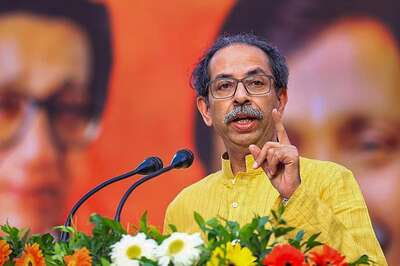
views
During monsoon, rains bring respite from scorching heat but it also brings a host of mosquito-borne diseases like dengue, malaria and chikungunya along with it. Mosquitoes during monsoon breed on stagnant water. In Bareilly, Uttar Pradesh, the cases of 'deadly' plasmodium falciparum (PF) malaria increased to nearly 550 from July 21 to August 20 as against 157 cases from January 1 to July 20 this year.
According to The Times of India report, nearly 5,600 people were tested positive for the milder Plasmodium vivax (PV) malaria in the past one month. The total number of PV malaria cases from January 1 to August 20 stands at 18,400.
Following the outbreak of malaria in 2018, a total of 17,425 patients were detected for PF malaria and 20,057 were tested positive with PV malaria in Bareilly district.
Officials said that incessant rainfall in the district have filled water bodies that have enhanced the breeding of mosquitoes.
“We have started intensive active surveillance in five blocks of the district to search malaria patients and start their immediate treatment on the spot. If a PF patient is not treated, it leads to the multiplication of parasite. Whenever a patient is tested positive for PF malaria, the indoor residual spray is conducted in all houses of that village to kill infected mosquitoes," TOI reported quoted Chief medical officer Dr Vineet Shukla saying.
Dr Shukla added that fogging and larvicidal spray is also underway to contain the breeding of mosquitoes.
According to the health department, 229 villages have been covered under intensive active surveillance in the past few days, during with a team of Auxiliary nurse midwife (ANMs) visit each village in the affected block and conduct rapid diagnostic tests on people having complaints of fever to check if they are suffering from malaria.
"We are conducting intensive active surveillance in Majhgavan, Bhamora, Ramnagar, Kyara and Faridpur blocks from where maximum cases are being detected," D R Singh, district malaria officer was quoted as saying by TOI.
Awareness drive is being carried out in affected areas to deal with the monsoon disease, officials said. People should make sure that water is not getting accumulated in the vicinity. Also, dump garbage and keep the neighbourhood clean. People should drink safe and portable water. If any person has a fever, he/she should consult a doctor and avoid self-medication.




















Comments
0 comment